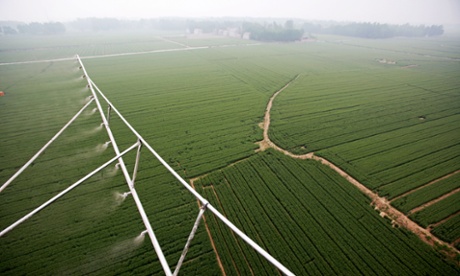Regulations on pesticides have failed to prevent poisoning of almost all habitats, international team of scientists concludes
 The world’s most widely used insecticides have contaminated the environment across the planet so pervasively that global food production is at risk, according to a comprehensive scientific assessment of the chemicals’ impacts.
The world’s most widely used insecticides have contaminated the environment across the planet so pervasively that global food production is at risk, according to a comprehensive scientific assessment of the chemicals’ impacts.
The researchers compare their impact with that reported in Silent Spring, the landmark 1962 book by Rachel Carson that revealed the decimation of birds and insects by the blanket use of DDT and other pesticides and led to the modern environmental movement.
Billions of dollars’ worth of the potent and long-lasting neurotoxins are sold every year but regulations have failed to prevent the poisoning of almost all habitats, the international team of scientists concluded in the most detailed study yet. As a result, they say, creatures essential to global food production – from bees to earthworms – are likely to be suffering grave harm and the chemicals must be phased out.
The new assessment analysed the risks associated with neonicotinoids, a class of insecticides on which farmers spend $2.6bn (£1.53bn) a year. Neonicotinoids are applied routinely rather than in response to pest attacks but the scientists highlight the “striking” lack of evidence that this leads to increased crop yields.
“The evidence is very clear. We are witnessing a threat to the productivity of our natural and farmed environment equivalent to that posed by organophosphates or DDT,” said Jean-Marc Bonmatin, of the National Centre for Scientific Research (CNRS) in France, one of the 29 international researchers who conducted the four-year assessment. “Far from protecting food production, the use of neonicotinoid insecticides is threatening the very infrastructure which enables it.” He said the chemicals imperilled food supplies by harming bees and other pollinators, which fertilise about three-quarters of the world’s crops, and the organisms that create the healthy soils which the world’s food requires in order to grow.
Read more: http://www.theguardian.com/environment/2014/jun/24/insecticides-world-food-supplies-risk























